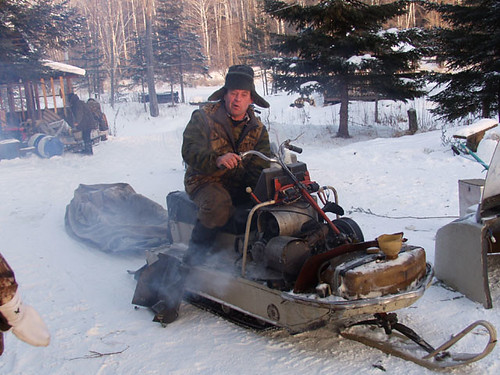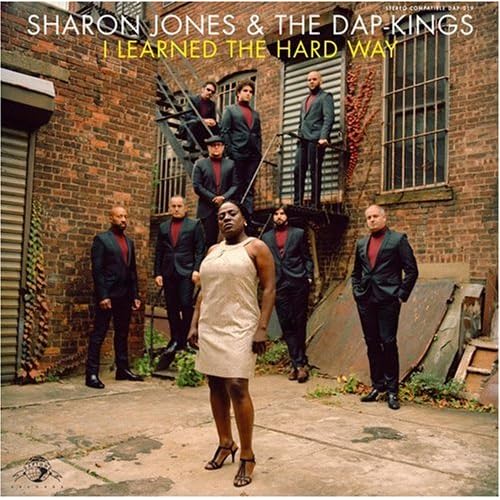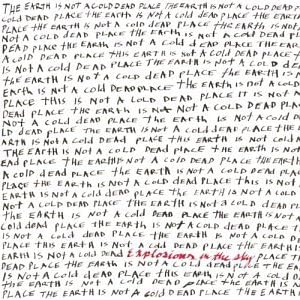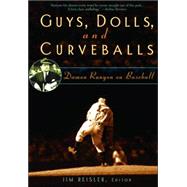Monday, December 20, 2004
My Tractor, My Love
When I was still in the youthful stages of sponging up all that was thrown at me without filtering out the unbelievable, my father loaded me up with stories of his war service in the "Grand and Glorious Tito's Army". My father was a political prisoner during WW II, since he neither agreed with the position of the Royalists in Yugoslavia, who were siding with Germany, nor with the blather of the Partisans, the Communist guerillas, who sided with the Brits and were headed by Josip Broz Tito.. His tales tended toward the pseudo-ridiculous realism of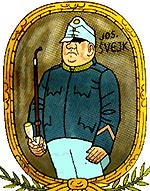 "The Good Soldier Schweik".
"The Good Soldier Schweik".
Since he was given a wooden rifle (seriously, a rifle made entirely of wood, including the barrel), he was not a mortal threat to anyone, friend or foe.
Wait.
Hold it.
Let me take that back.
He was a threat to anyone who wanted to smoke, which in those days was everyone and his mule. War sharpens one's scrounging skills, so he and his mates concocted cigarettes from scraps of newspapers and a finely blended mixture of hay, pasture grass, and some non-memorable flower petals. Conducting oneself as a political POW made for a plentitude of time. Since you couldn't be shooting anything or anybody with wooden rifles, smoking and spieling were the prime time burners. The only other activity available was indoctrination opportunities. Wartime Yugoslavia did not have its version of Hollywood, so it counted on Russia to provide the movies to instill comradeship and Motherland in its troops. Tito didn’t necessarily trust Stalin but he borrowed some films.
My father spoke of these movies. Well, he didn't really speak. It was more like a stream or two of words put together cogently and than a waterfall of guffaws and laughter that tended to leave him prone on the ground in heaving hilarity. Let's say the movies didn't have the affect they were intended to have by the "Grand and Glorious Tito's Army". One film, "Tractor Drivers", came up repeatedly as a sure sign that the Russian film industry were out to lunch and enjoying their meal. The gist of the movie was how one farmer loved his tractor so much because it let him meet his production quota, keep his family safe, and helped him to defeat an entire German division.
Plus.
He did all this while singing on the tractor.
When he came to this country, as a chemical engineer who spoke 5 languages, he was rather surprised to see that America also had its share of "Tractor Drivers" entertainment. What stunned him was that people paid to see this type of entertainment. On Broadway. Needless to say (but I’ll waste your precious time by saying it anyway), it took a long time for him to "appreciate" musicals; at times he just couldn't contain himself and ended up off his chair rolling with laughter.
When not enthralling me with tales of the Grand Army, Russian cinematography, POW camp shenanigans, my father was also introducing me to the great Slavic satirists. These included the already mentioned "Good Soldier Schweik" by Jaroslav Hasek, Ilf & Petrov's "The Little Golden Calf" and “Twelve Chairs”. Vladimir Voinovich's "The Life & Extraordinary Times of Private Ivan Chonkin", and Mikhail Zoshchenko's "Nervous People & Other Satires", among others.
 (available at DVD Empire and at Netflix)
(available at DVD Empire and at Netflix)
Somewhere between the sublime and the ridiculous lies lunacy. Totalitarianism is not far behind, especially if one throws in cruelty and blindness. So, where does all that bring us? Why to East Side Story, "a delirious documentary that unveils a part of film history until now unknown in the West: Soviet and eastern block communist musicals. Featuring hearty peasants and workers singing and dancing their way through fields and factories, these Hollywood-style musicals interpret American escapism in socialist terms." Dana Ranga and Andrew Horn have taken a collection of Russian and other East bloc countries’ propaganda films and collected the best bits into one film. We get to see a clip from the 1939 "Tractor Drivers", and it's quite goofy seeing these proud Soviet farmers singing joyfully about their tractors and their good lives. There is a little chill, however, when they go out of their way to boastfully sing how they will be willingly be directed by Stalin to fight any invading force they enters their country. (So it's clear that the Soviets, despite the non-aggression treaty with Germany, weren't totally naive about the situation brewing in the west.) As well, we get to see another blatant propaganda clip from the 1940 effort, "The Bright Path". In the clip, a young woman has a dream where she is lead down an actual path by some holy-like figure to paradise - which is a factory! Yes, work is the key to happiness, work will make you free, and the young woman is so overjoyed, she picks up a broom and starts sweeping the factory floor. (Every little bit helps the Mother Russia!)
Just waiting for the next Netflix delivery.
When I was still in the youthful stages of sponging up all that was thrown at me without filtering out the unbelievable, my father loaded me up with stories of his war service in the "Grand and Glorious Tito's Army". My father was a political prisoner during WW II, since he neither agreed with the position of the Royalists in Yugoslavia, who were siding with Germany, nor with the blather of the Partisans, the Communist guerillas, who sided with the Brits and were headed by Josip Broz Tito.. His tales tended toward the pseudo-ridiculous realism of
 "The Good Soldier Schweik".
"The Good Soldier Schweik".
Since he was given a wooden rifle (seriously, a rifle made entirely of wood, including the barrel), he was not a mortal threat to anyone, friend or foe.
Wait.
Hold it.
Let me take that back.
He was a threat to anyone who wanted to smoke, which in those days was everyone and his mule. War sharpens one's scrounging skills, so he and his mates concocted cigarettes from scraps of newspapers and a finely blended mixture of hay, pasture grass, and some non-memorable flower petals. Conducting oneself as a political POW made for a plentitude of time. Since you couldn't be shooting anything or anybody with wooden rifles, smoking and spieling were the prime time burners. The only other activity available was indoctrination opportunities. Wartime Yugoslavia did not have its version of Hollywood, so it counted on Russia to provide the movies to instill comradeship and Motherland in its troops. Tito didn’t necessarily trust Stalin but he borrowed some films.
My father spoke of these movies. Well, he didn't really speak. It was more like a stream or two of words put together cogently and than a waterfall of guffaws and laughter that tended to leave him prone on the ground in heaving hilarity. Let's say the movies didn't have the affect they were intended to have by the "Grand and Glorious Tito's Army". One film, "Tractor Drivers", came up repeatedly as a sure sign that the Russian film industry were out to lunch and enjoying their meal. The gist of the movie was how one farmer loved his tractor so much because it let him meet his production quota, keep his family safe, and helped him to defeat an entire German division.
Plus.
He did all this while singing on the tractor.
When he came to this country, as a chemical engineer who spoke 5 languages, he was rather surprised to see that America also had its share of "Tractor Drivers" entertainment. What stunned him was that people paid to see this type of entertainment. On Broadway. Needless to say (but I’ll waste your precious time by saying it anyway), it took a long time for him to "appreciate" musicals; at times he just couldn't contain himself and ended up off his chair rolling with laughter.
When not enthralling me with tales of the Grand Army, Russian cinematography, POW camp shenanigans, my father was also introducing me to the great Slavic satirists. These included the already mentioned "Good Soldier Schweik" by Jaroslav Hasek, Ilf & Petrov's "The Little Golden Calf" and “Twelve Chairs”. Vladimir Voinovich's "The Life & Extraordinary Times of Private Ivan Chonkin", and Mikhail Zoshchenko's "Nervous People & Other Satires", among others.
 (available at DVD Empire and at Netflix)
(available at DVD Empire and at Netflix)
Somewhere between the sublime and the ridiculous lies lunacy. Totalitarianism is not far behind, especially if one throws in cruelty and blindness. So, where does all that bring us? Why to East Side Story, "a delirious documentary that unveils a part of film history until now unknown in the West: Soviet and eastern block communist musicals. Featuring hearty peasants and workers singing and dancing their way through fields and factories, these Hollywood-style musicals interpret American escapism in socialist terms." Dana Ranga and Andrew Horn have taken a collection of Russian and other East bloc countries’ propaganda films and collected the best bits into one film. We get to see a clip from the 1939 "Tractor Drivers", and it's quite goofy seeing these proud Soviet farmers singing joyfully about their tractors and their good lives. There is a little chill, however, when they go out of their way to boastfully sing how they will be willingly be directed by Stalin to fight any invading force they enters their country. (So it's clear that the Soviets, despite the non-aggression treaty with Germany, weren't totally naive about the situation brewing in the west.) As well, we get to see another blatant propaganda clip from the 1940 effort, "The Bright Path". In the clip, a young woman has a dream where she is lead down an actual path by some holy-like figure to paradise - which is a factory! Yes, work is the key to happiness, work will make you free, and the young woman is so overjoyed, she picks up a broom and starts sweeping the factory floor. (Every little bit helps the Mother Russia!)
Just waiting for the next Netflix delivery.
Comments:
<< Home Verging on Pertinence Just some more disposable thoughts clogging up the hinterlands
Gee, Darko - does your dad blog? Shweik might be demoted to a footnote should some of those stories see the cathode-ray light of day. What a treat to see a mention of Shweik lead toward the discovery of East Side Story! Do you recall when SCTV was highjacked by 3CP1? I could probably quote most of the dialogue from all the "Russian" shows ("Hey, Yorgi!"). Anyhow, seems to me one of these included a peasant worker and his tractor. I thought it fanciful, but once again, we face the prospect of art simply appropriating what has come before.
Mr. WP,
Unfortunately, my father died before blogging cam about. Your q. about his blogging does bring a phantasmagora of blog entrie he probably would have done, had he been around. Your kind comments are appreciated. I'm sure he's up there now rolling around the celestial rug, laughing at our current prez-idential situation. He was alive for the Reagan years, and though they couldn't be topped for verbal slips. His stories of his war years were hilarious, but you had to be an expert at verbal baiting to hook him into a sory. I was a novice, so I tended to troll around, getting nary a bite. He was a sucker for my kids; they were more successful in hooking him.
Post a Comment
Unfortunately, my father died before blogging cam about. Your q. about his blogging does bring a phantasmagora of blog entrie he probably would have done, had he been around. Your kind comments are appreciated. I'm sure he's up there now rolling around the celestial rug, laughing at our current prez-idential situation. He was alive for the Reagan years, and though they couldn't be topped for verbal slips. His stories of his war years were hilarious, but you had to be an expert at verbal baiting to hook him into a sory. I was a novice, so I tended to troll around, getting nary a bite. He was a sucker for my kids; they were more successful in hooking him.
<< Home Verging on Pertinence Just some more disposable thoughts clogging up the hinterlands

